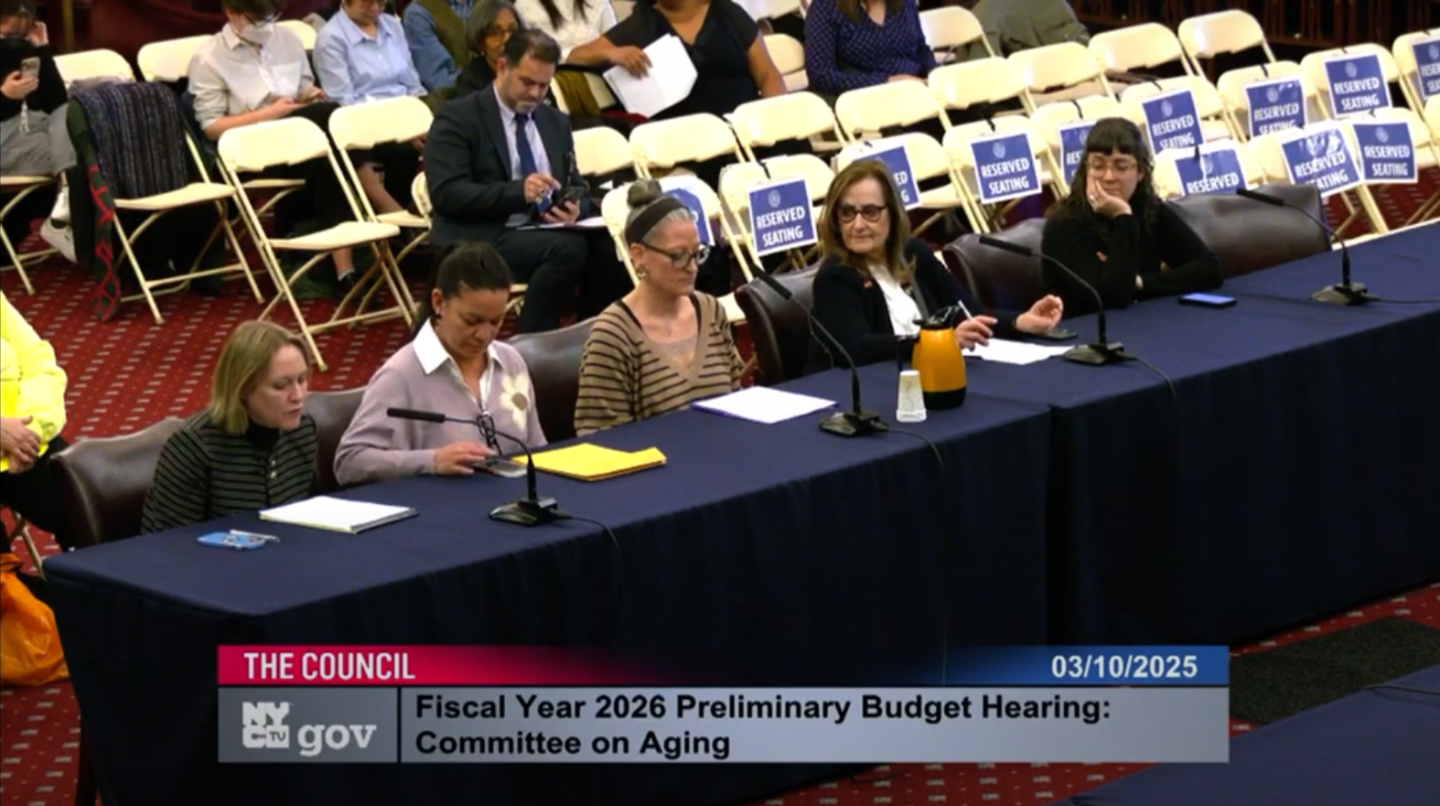
Testimony for the
CITY COUNCIL FY 26 PRELIMINARY BUDGET
Topic: Aging
March 10, 2025
Committee on Aging, Chair Crystal Hudson
Thank you, Chair Hudson and fellow committee members, for the opportunity to testify today. My name is Kimberly George, and I am the President and CEO of Project Guardianship. Project Guardianship provides person-centered guardianship services to New Yorkers with no other option. We also work to promote and develop less restrictive alternatives to guardianship and advocate for critical improvements to the Article 81 guardianship system in New York State.
In New York, guardians play a key role in protecting vulnerable people who have lost capacity, including older adults, immigrants, and those experiencing mental health crises. For older adults with cognitive decline, a guardian may be appointed to manage their finances, ensure they attend medical appointments, and support their social engagement within the community. For immigrants, guardianship can be especially complex, as legal status may impact access to healthcare, social services, and protections in cases of incapacity. In these instances, a guardian may be appointed to ensure that essential care is provided. For individuals experiencing mental health crises, a guardian can play a vital role in securing public benefits, ensuring access to medication, and stabilizing their well-being.
Regardless of the circumstances that lead to the need for guardianship, Article 81 of New York’s Mental Hygiene Law mandates that anyone requiring a guardian shall have one appointed. However, in practice, access to guardianship services is far from guaranteed. Unless an individual has a family member or friend able to serve as a guardian or the financial means to pay for a private guardian, they may experience significant delays or even fail to receive appropriate guardianship at all. A recent survey of guardianship judges across New York State found that courts are unable to find guardians to appoint in approximately one-third of cases where guardianship is deemed necessary. In New York City, that figure rises to one-half. When a judge is unable to appoint a guardian, the individuals who need them may face prolonged periods without critical decisions being made on their behalf—including life-altering choices such as end-of-life care. In some cases, those in need may be assigned a guardian who lacks the qualifications, commitment, or person-centered approach that every New Yorker deserves.
As advocates for New Yorkers in need of surrogate decision-makers, we recognize the essential role of a well-funded, efficient guardianship system in ensuring care, protection, and dignity for all, particularly older adults, individuals with disabilities, immigrants, and other marginalized populations. While we appreciate Governor Hochul’s acknowledgment of the state's aging population, the absence of dedicated funding for guardianship services significantly undermines the ability of nonprofits to meet the rising demand. Without adequate resources, individuals in dire need of guardianship services face long waitlists or may be assigned unqualified or exploitative guardians, placing their health, safety, and dignity at serious risk.
For the past thirty years, nonprofit organizations have stepped in to fill the gap, raising both private and public funds to provide high-quality guardianship services for those with no other options. These organizations deliver holistic care that not only enhances quality of life but also reduces unnecessary institutionalization, helping vulnerable New Yorkers remain in their homes and communities. A recent study of Project Guardianship’s services found that by minimizing hospitalizations and prolonged nursing home stays, nonprofit guardianship programs save the public an average of $67,000 per client annually, largely through Medicaid savings. If nonprofits were funded to meet the full demand for guardianship services statewide, the estimated public savings would exceed $85 million per year.
The recent passage of New York City Council Resolution 0561—which urges the State Legislature to introduce and pass, and the Governor to sign, legislation establishing a statewide public guardianship system in partnership with reputable nonprofit providers—is an important step forward. However, over 60 percent of all guardianship arrangements in the state occur within New York City. As demographic shifts continue—including the rapid growth of the older adult population, rising cases of Alzheimer’s disease and related dementias, and the ongoing mental health crisis—we cannot afford to wait for state intervention. We urge our local leaders to take immediate action by allocating funding to support these critical services in our communities.
Project Guardianship commends Chair Crystal Hudson and the Aging Committee for their dedication to addressing the needs of New York’s older and disabled populations. Thank you for your leadership and commitment to protecting our most vulnerable residents.
